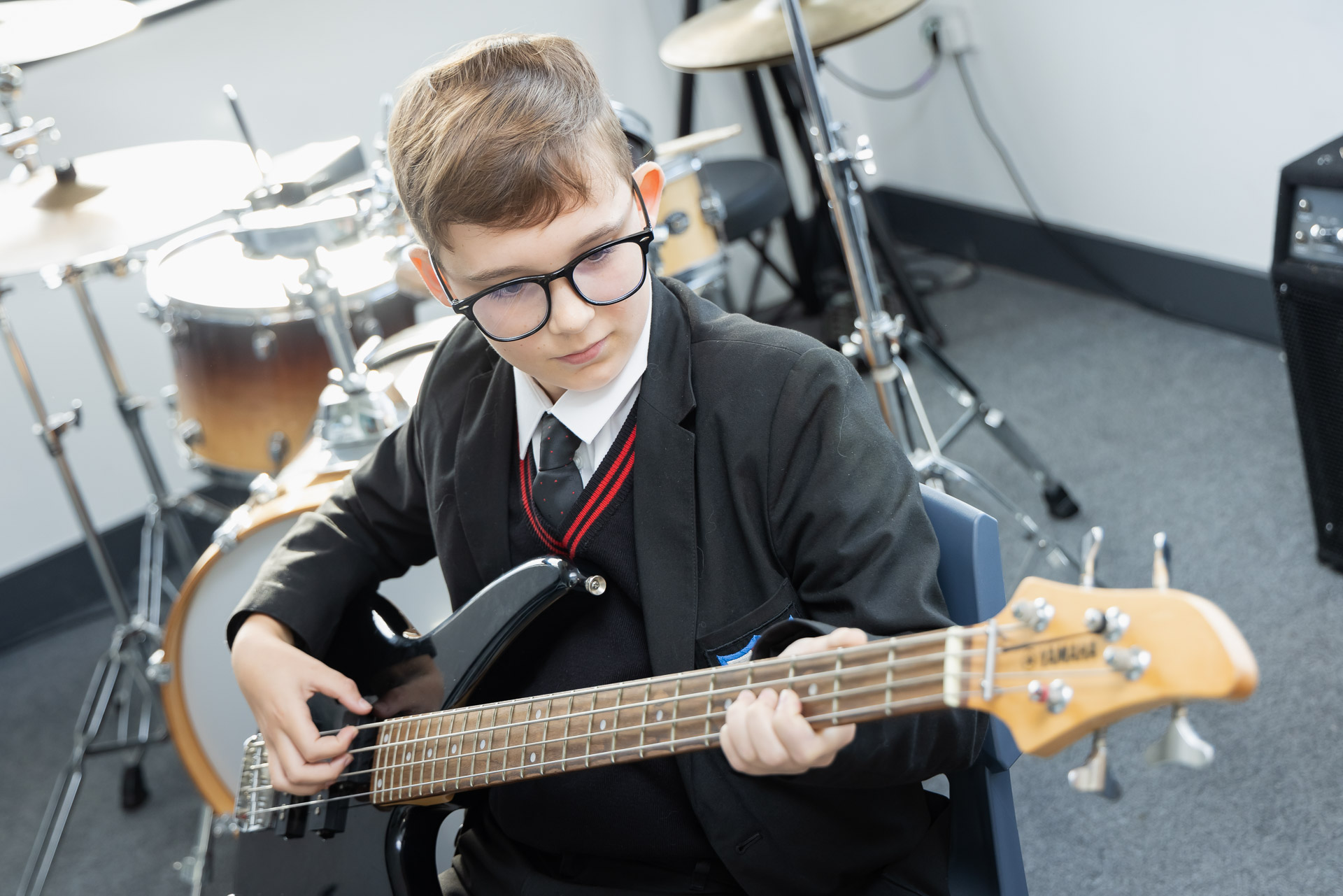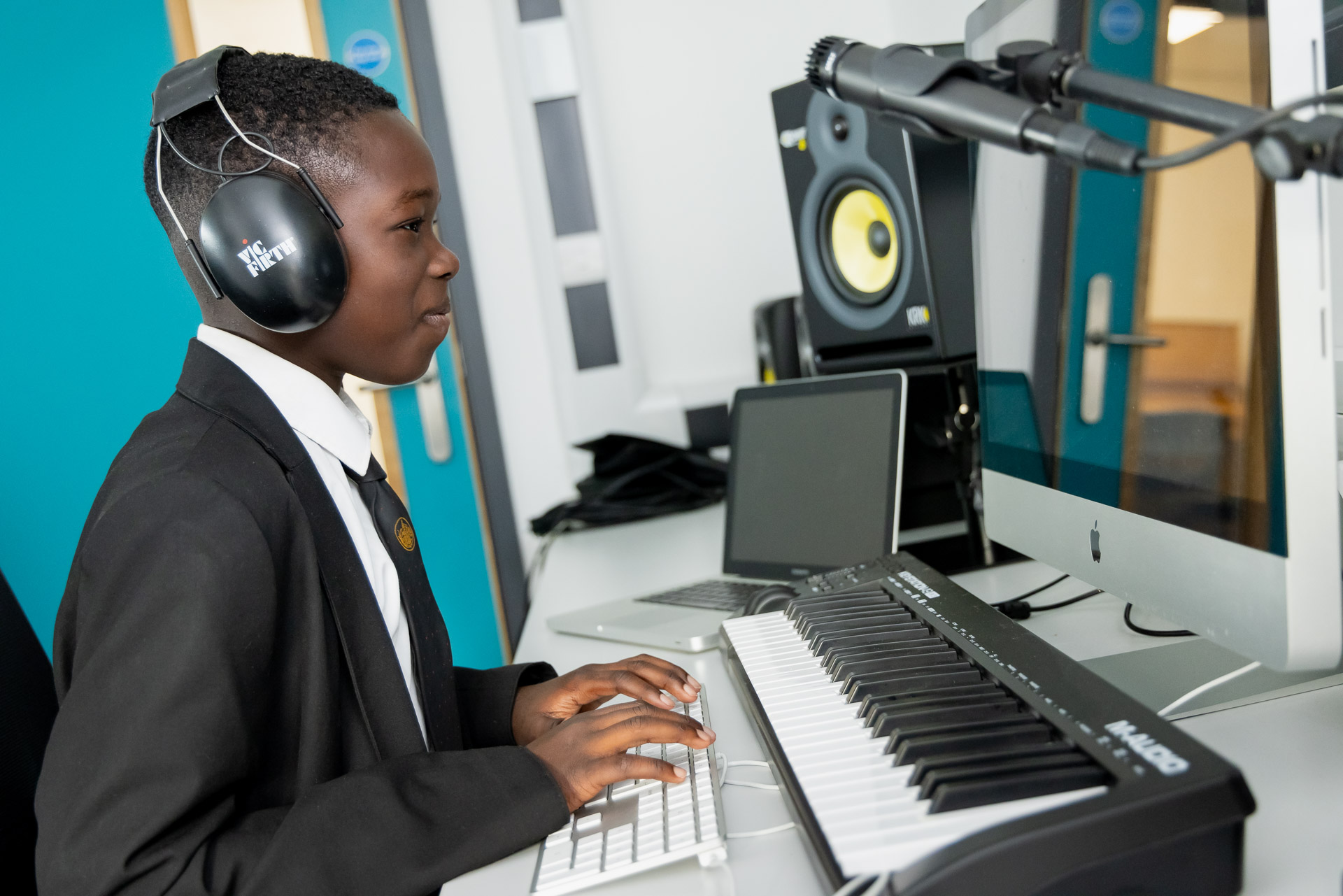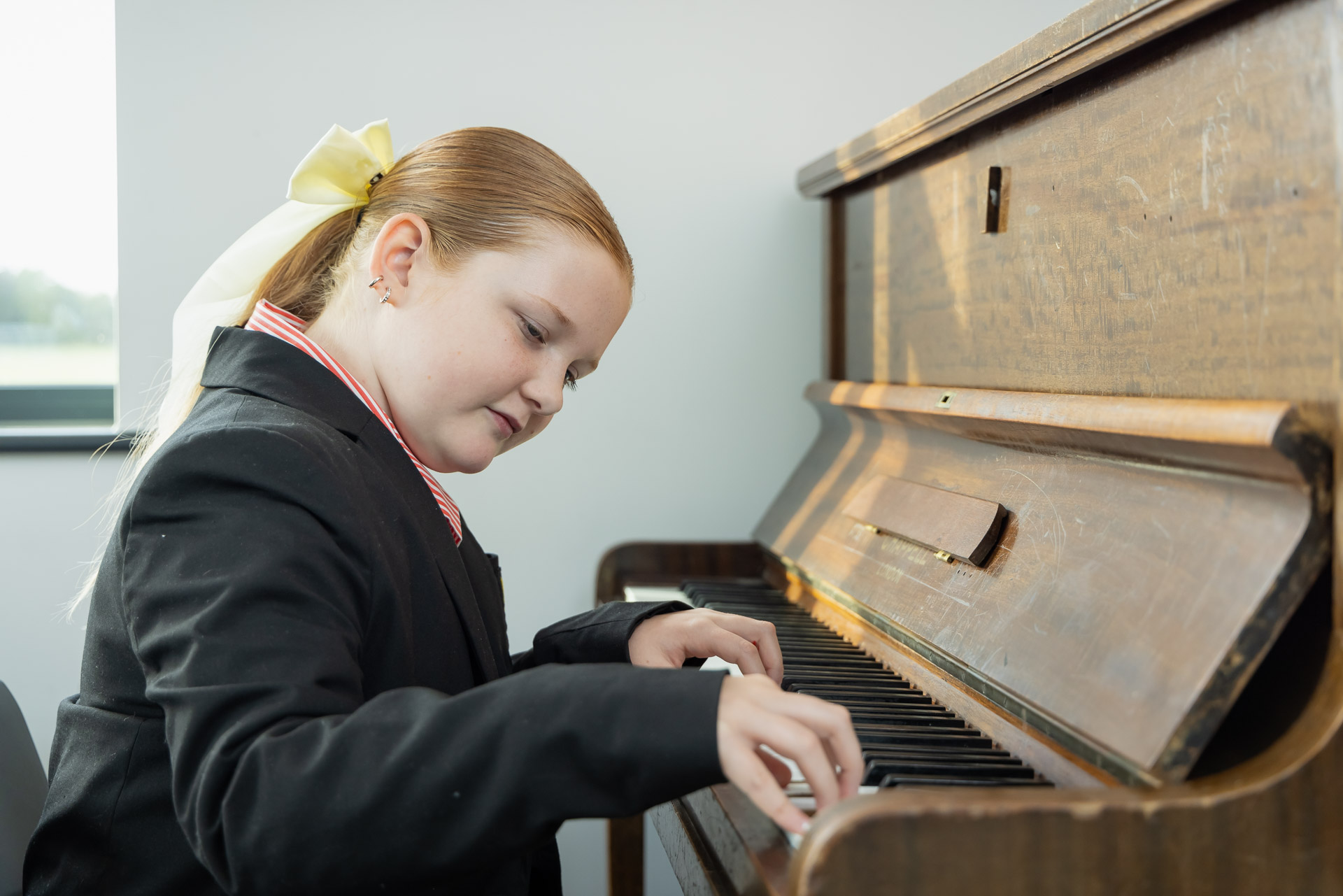Music
Curriculum Leader: Mr D Mackey - mackeyd@saintgeorges.kent.sch.uk
Music is life, itself
Louis Armstrong
You’ll learn essential skills from performing and composing to producing, sound engineering and promoting a new track, album or concert. Through a combination of practical experience and written assignments, this vocational qualification provides level 2 learners with the knowledge, skills and understanding needed for a career in the music sector. This course also supports the development of musical fluency and provides access to further study of music at level 3.
View our Learning Journey for Music here
Intent
The Music curriculum at KS3 covers a broad range of topics with a focus on the key pillars of the model music curriculum. Our curriculum is designed in a way to allow students to experience, perform and create music from different cultures, genres, and time periods. The curriculum is there to motivate and inspire students with a thought towards KS4 and KS5 courses, as well as wider extracurricular opportunities. Key skills are introduced at KS3 and are developed throughout the musical journey to ensure academic excellence at KS4 and KS5.

Implementation

Students are provided with lots of opportunities for collaborative working; composing, ensemble performance, listening and appraising. Lessons are carefully sequenced and build on prior learning with a view to future topics. Lessons are fully inclusive to support the progress of individual students who have a range of different starting points.
We ensure that SEND and disadvantaged children are given the necessary support in class to access the Curriculum fully and that equal opportunities are given to all.
Impact
The Music journey encourages students to develop confidence, self-respect, resilience, problem-solving and presentation skills. Our students become ‘creative thinkers’. It prepares them for a life in, or outside of Music. It allows students to flourish and express themselves in a nourishing setting. Overall, music plays an important role in the life and ethos of the school.

Music at Key Stage 3 (KS3)
Per fortnight: 1 Lesson
Pupils are given opportunities to explore different genres and styles and learn and develop different performance and compositional techniques. The curriculum allows students to be creative and express themselves in a nourishing environment. Students are encouraged to reflect on their own performance and composition skills
| Year 7 | Year 8 | Year 9 |
|---|---|---|
| MADTSHIRT, Introducing Composition, Introducing Ensemble Performance. | Through The Decades, Guardians of the Galaxy (writing Music for film), Rockband. | Music is offered as part of the taster rotation. |
Music at Key Stage 4 (KS4)
Per Fortnight: 5 Lessons
At KS4, the course offered is the BTEC Level 1/2 Tech Award in Music Practice. This qualification is ideal for a student working at level 1 or level 2 and would like to find out more about the music industry. This course offers a practical introduction to life and work in the music industry. The qualification, which is 120 GLH, is the same size and level as a GCSE. This course will give you the opportunity to develop knowledge and technical skills in a practical learning environment. You will develop key skills, ranging from rehearsing to experimenting with technology, equipment, and instruments. You will also develop an understanding of the music industry. The course is assessed through a combination of internal and external units. Students who choose to study Music at KS4 are strongly encouraged to have a significant role in public performances and events, as well as an interest in playing or learning to play a musical instrument.
BTEC Level 1/ Level 2 Internal and External Assessments
The three components in the qualification give learners the opportunity to develop broad knowledge and understanding of the music sector, and specialist skills such as applying musical knowledge to music performance, music creation and music production at Levels 1 and 2.
The grades that can be achieved are Pass, Merit, Distinction and Distinction*.
| Component | Component Description |
|---|---|
|
1 (Internal) |
Exploring Music Products and Styles - exploration of the techniques used in the creation of different musical products and investigation of the key features of different musical styles and genres. |
|
2 (Internal) |
Music Skills Development - development of two musical disciplines through engagement in practical tasks, while documenting their progress and planning for further improvement |
|
3 (External) |
Responding to a Music Brief - developing and presenting music in response to a given music brief. |
Exam Board: Pearson BTEC Level 1/ Level 2 Tech Award in Music Practice
Music Future Paths
Students can progress further to obtain the BTEC Level National Extended Certificate in Music Performance.
Alongside the obvious routes through further and higher education into the media, music and production environment, the leisure and entertainment industry is one of Britain’s largest employers.
